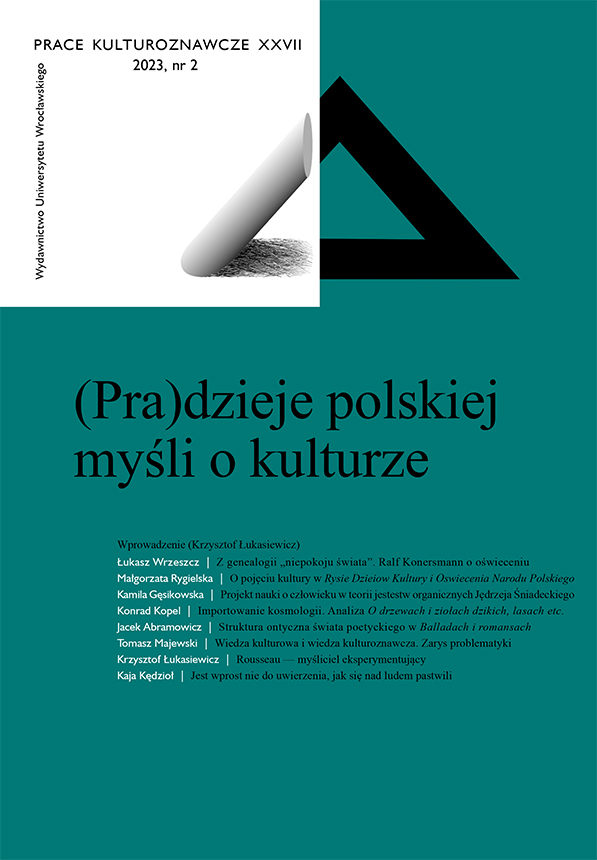

Articles

Cultural knowledge is localized knowledge, understanding that exists and is conducted “inside” the values, customs, rules and practices that are common to a given society or group. It consists of common, shared rules of interpretation, constructions of reality and worldviews. Cultural knowledge is closely related to tacit knowledge, which cannot be fully articulated or explained in abstract notions, unlike explicit knowledge. The “culturologically” shaped theory of culture and propositional knowledge about culture seem to be heading in the opposite direction, in that it to be a universal “look out of nowhere.” The author reflects on the relationship between the Weberian ideal types of “cultural knowledge” and “culturological shaped knowledge” within the projected “ecology of knowledge forms.” He asks how this relationship was modeled at the beginning of the institutionalization of culturology and cultural studies as a scientific discipline in the 1970s. The cognitive dimension meets the practical dimension here, together with the question of whether it is possible to model this relationship in such a way that culturology finds its place today as a research discipline offering insights into its own “particular cultural knowledge” as “cognitively valuable knowledge” and as a therapy discourse for pathologies, and ideological abuses related to the “particular cultural universe of its own concepts.”